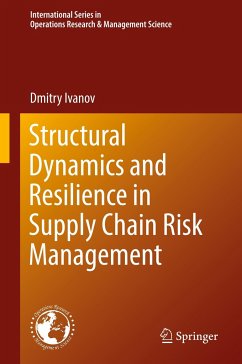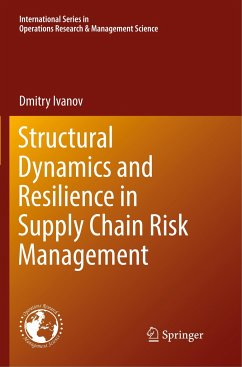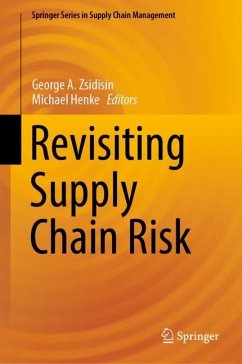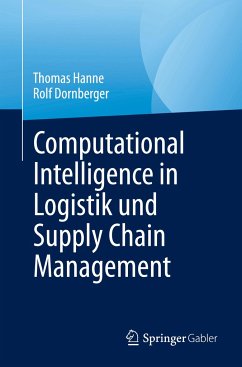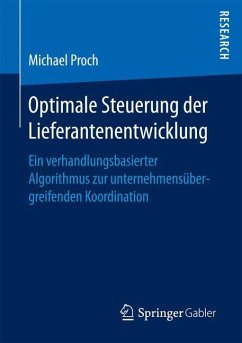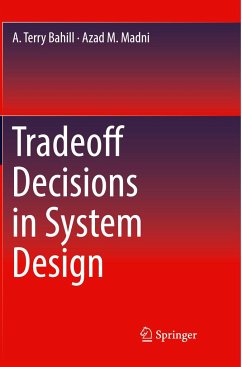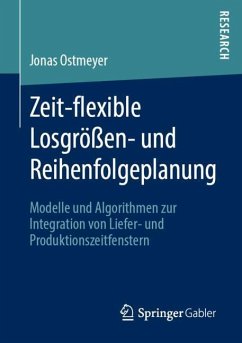Nicht lieferbar
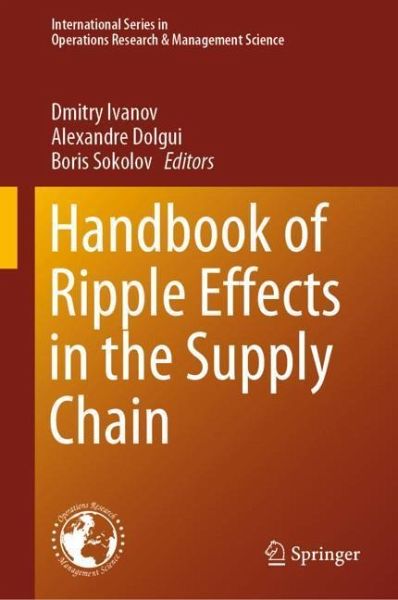
Handbook of Ripple Effects in the Supply Chain
Versandkostenfrei!
Nicht lieferbar
This book offers an introduction to the ripple effect in the supply chain for a broad audience comprising recent developments. The chapters of this handbook are written by leading experts in supply chain risk management and resilience. For the first time, the chapters present in their synergy a multiple-faceted view of the ripple effect in supply chains, while considering organization, optimization, and informatics perspectives. Ripple effect describes the impact of a disruption propagation on supply chain performance, structural designs and operational parameters. The ripple effect manifests ...
This book offers an introduction to the ripple effect in the supply chain for a broad audience comprising recent developments. The chapters of this handbook are written by leading experts in supply chain risk management and resilience. For the first time, the chapters present in their synergy a multiple-faceted view of the ripple effect in supply chains, while considering organization, optimization, and informatics perspectives.
Ripple effect describes the impact of a disruption propagation on supply chain performance, structural designs and operational parameters. The ripple effect manifests when the impact of a disruption cannot be localized and cascades along the supply chain. The resulting structural dynamics can lead to capacity and demand fulfilment downscaling and negatively influence the firm's financial and operational performance. The book delineates major features of the ripple effect and methodologies to mitigate the adverse impact of supply chain disruption propagation and to recover in case of severe disruptions.
The book provides fresh insights for supply chain management and engineering regarding the following questions: - In what circumstance does one failure cause other failures? - Which structures of the supply chain are especially susceptible to the ripple effect? - What are the typical ripple effect scenarios and what are the most efficient ways to respond them?
Distinctive Features: - It considers ripple effect in the supply chain from an multi-disciplinary perspective- It offers an introduction to ripple effect mitigation and recovery policies in the framework of disruption risk management in supply chains for a broad audience- It integrates management and engineering perspectives on disruption risk management in the supply chain- It presents innovative optimization and simulation models for real-life management problems- It considers examples from both industrial and service supply chains- It reveals decision-making recommendations for tackling disruption risks in the supply chain in proactive and reactive domains.
Ripple effect describes the impact of a disruption propagation on supply chain performance, structural designs and operational parameters. The ripple effect manifests when the impact of a disruption cannot be localized and cascades along the supply chain. The resulting structural dynamics can lead to capacity and demand fulfilment downscaling and negatively influence the firm's financial and operational performance. The book delineates major features of the ripple effect and methodologies to mitigate the adverse impact of supply chain disruption propagation and to recover in case of severe disruptions.
The book provides fresh insights for supply chain management and engineering regarding the following questions: - In what circumstance does one failure cause other failures? - Which structures of the supply chain are especially susceptible to the ripple effect? - What are the typical ripple effect scenarios and what are the most efficient ways to respond them?
Distinctive Features: - It considers ripple effect in the supply chain from an multi-disciplinary perspective- It offers an introduction to ripple effect mitigation and recovery policies in the framework of disruption risk management in supply chains for a broad audience- It integrates management and engineering perspectives on disruption risk management in the supply chain- It presents innovative optimization and simulation models for real-life management problems- It considers examples from both industrial and service supply chains- It reveals decision-making recommendations for tackling disruption risks in the supply chain in proactive and reactive domains.






